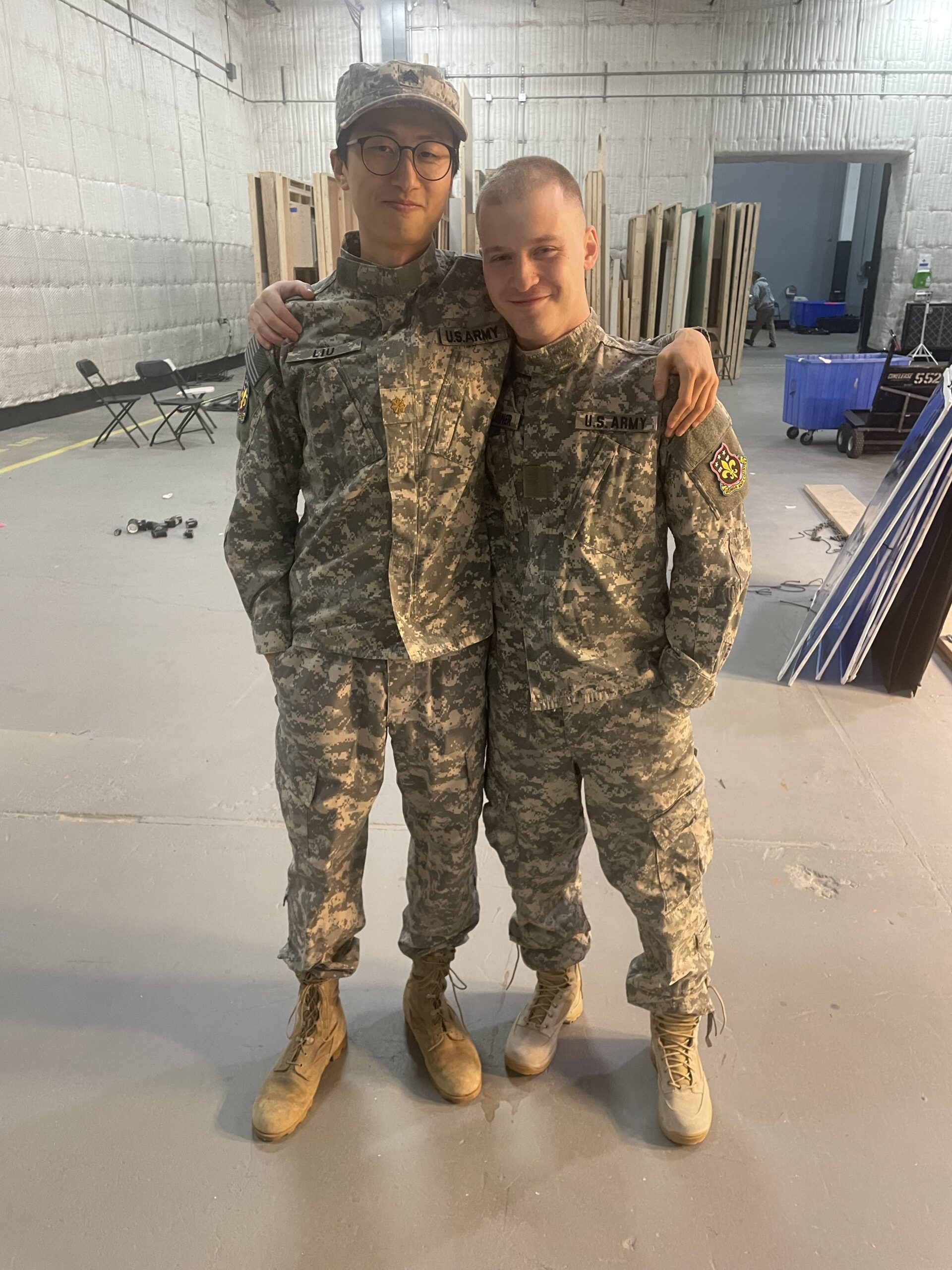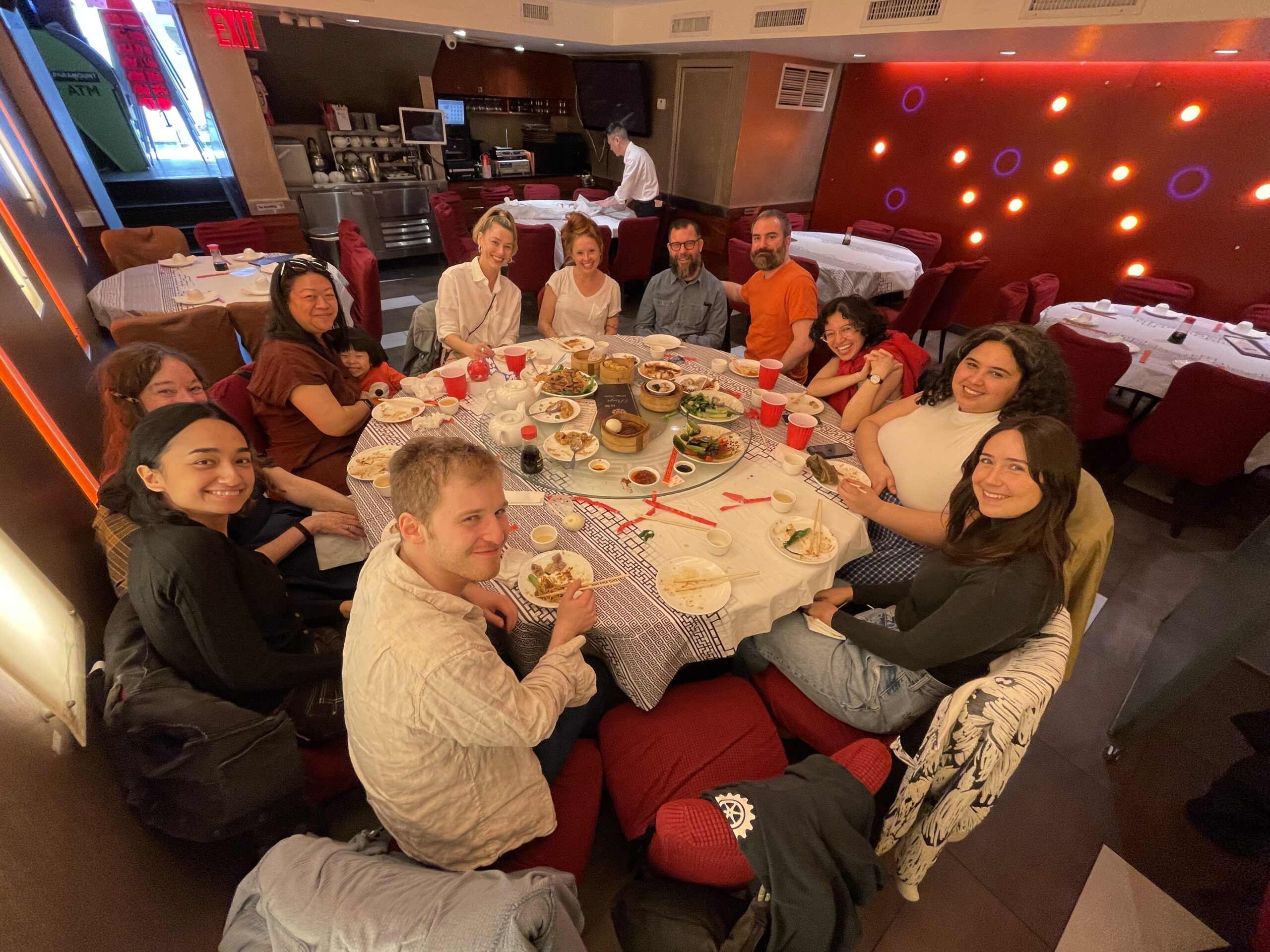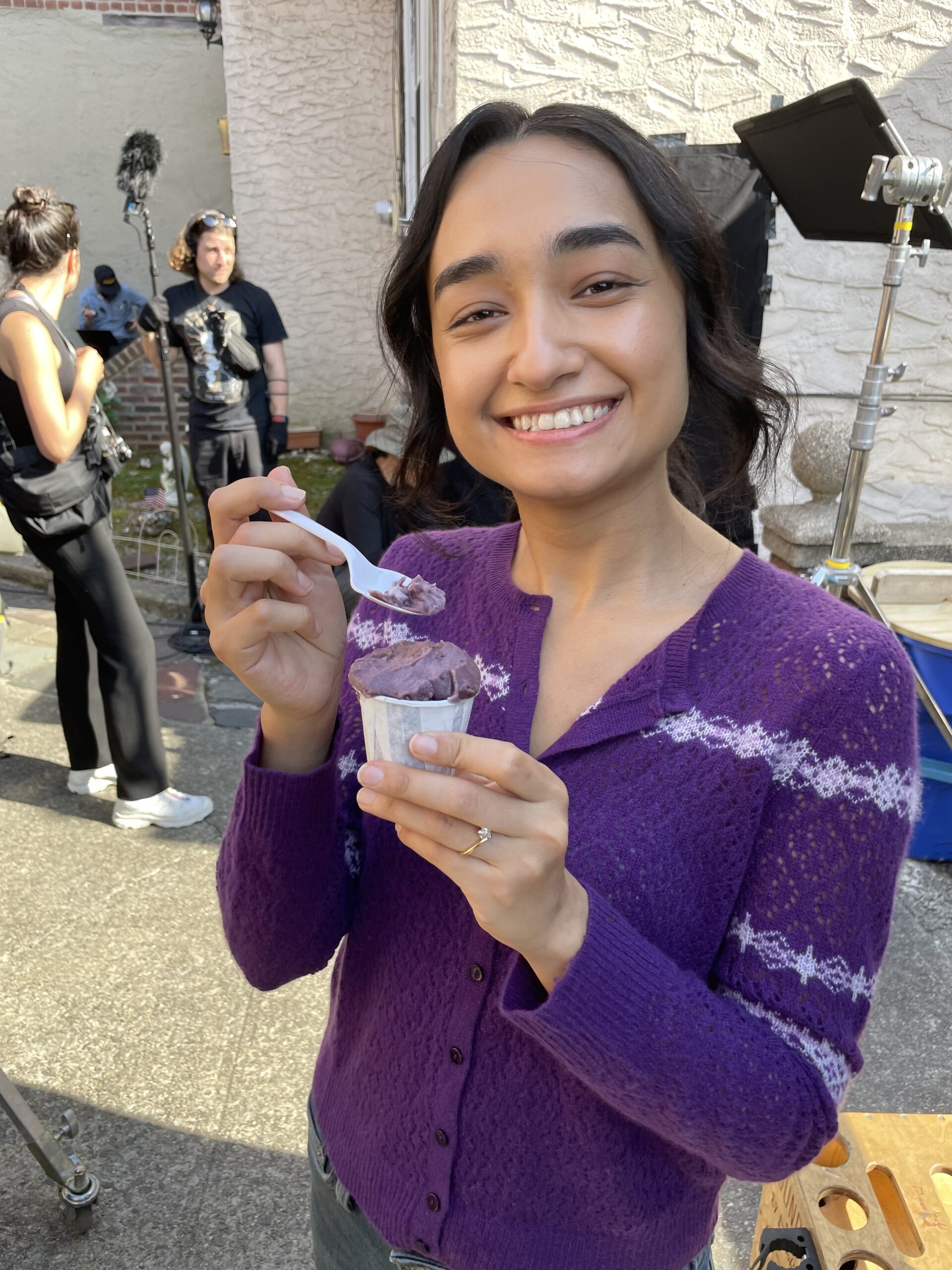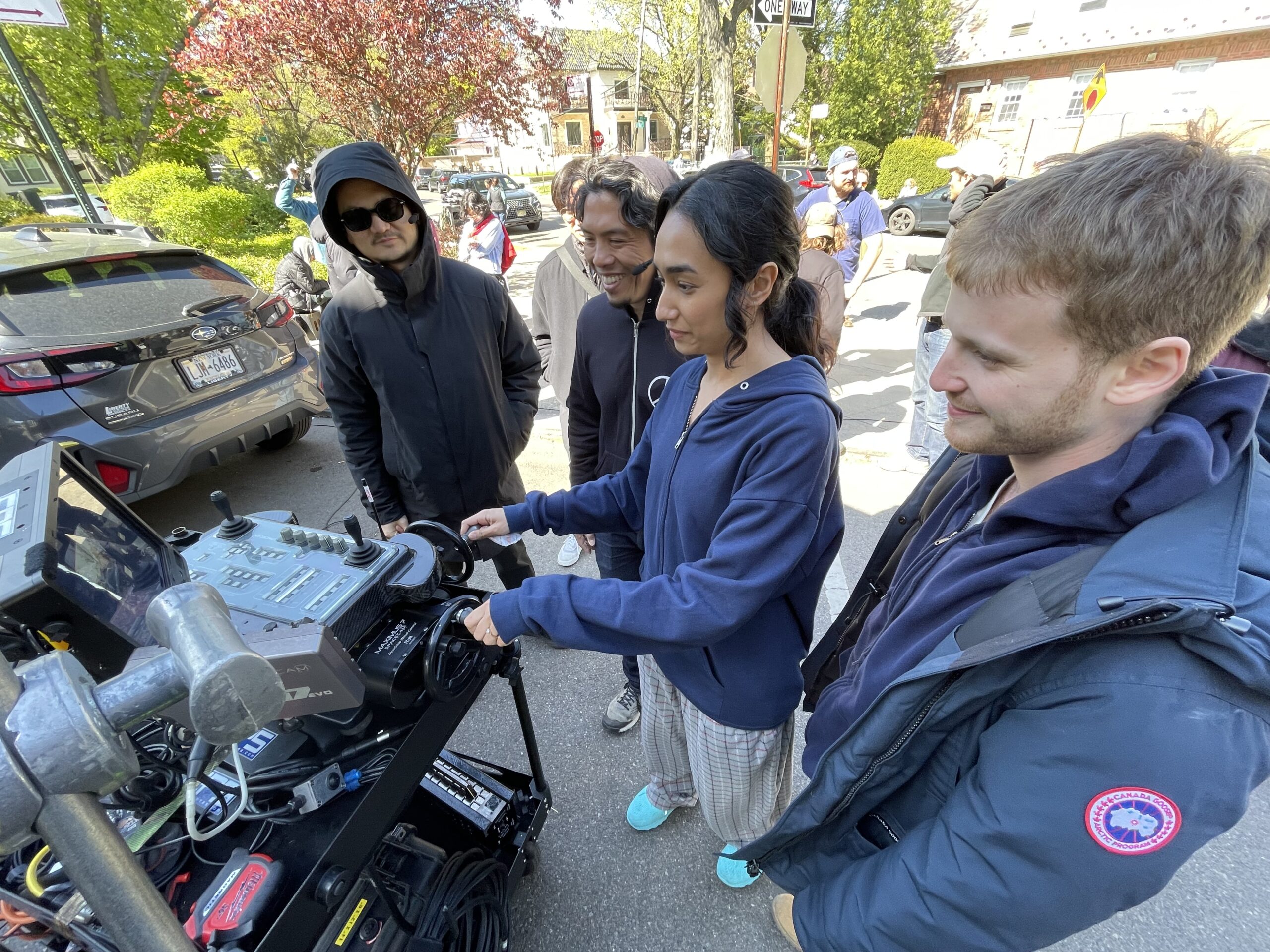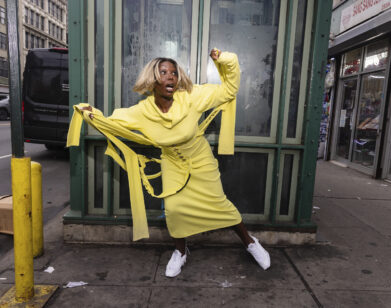DIRECTOR
Bing Liu Tells Barry Jenkins Why Life Is a Miracle, Literally
Last month, when Barry Jenkins asked Academy Award-nominated documentarian Bing Liu why he switched to fiction for his latest project, Liu’s answer was simple: “Why not?” After all, the 36-year-old Chinese-American filmmaker was working with rich source material. Preparation for the Next Life, streaming on Amazon this weekend, is an adaption of Atticus Lish’s award-winning 2014 novel about the troubled relationship between an undocumented immigrant and a U.S. military veteran who’ve just arrived in New York City. Originally slated to be a series directed by Jenkins, the script, written by the Polish playwright Martyna Majok, eventually found its way to Liu. “Part of what drew me to it,” Liu told Jenkins, “is that I know what it was like to be an outsider growing up in the Midwest in the ’90s and 2000s.” In the middle of a busy press day, the two directors got on Zoom to talk about dad life, perfect casting, and the misconceptions about Asian culture Liu sought to rectify.—SIMON DWIHARTANA
———
BING LIU: Morning.
BARRY JENKINS: How are you, sir? I normally would be dressed up, but with the baby…
LIU: Dad life?
JENKINS: Yeah, dad life. Exactly.
LIU: Congrats though, man.
JENKINS: Thank you, man. Thank you.
LIU: A huge life accomplishment.
JENKINS: Yeah, it’s been interesting. The baby’s awesome. Lulu [Wang, Jenkins’ wife] is doing well. But man, I have never gotten so little sleep in my life. Actually, I have gotten so little sleep. It was making movies.
LIU: [Laughs] Yeah.
JENKINS: I’ve got a question. How and why does an Academy Award-nominated documentary filmmaker decide to make the switch to directing a fiction narrative feature? What’s that process? How did you come to that choice?
LIU: It was kind of a “why not?” You were really involved. We met at Mountainfilm Telluride. You were on the jury. I remember you coming up to me after you and the other two jurors had awarded my first doc, Minding the Gap. You said, “Why don’t you try fiction?” You kind of gave me a little bit of a nudge. And I remember later, when I was taking a trip to LA, we met at your office in downtown L.A. and we just kind of chopped it up. And then you sent me this book, Preparation for the Next Life. You were going to do it as a series. I’ve always wondered about your decision to hand it off.
JENKINS: There’s no reason to talk in depth about that. Your version, I felt, was much more successful at capturing what was in the novel than the version I had been working on pre-Moonlight, I guess. I remember watching Minding the Gap and it felt like someone was sifting through consciousness and then finding a way to organize it into a coherent stream of thought, which is I guess what we do on set. And I don’t know why, but I remember watching that movie and just feeling like, “Oh, I just went on the same kind of ride I go on when I watch something like The Shawshank Redemption.” I’m not comparing Minding the Gap to Shawshank Redemption, but it’s like—
LIU: I’ll take it. I love that film.
JENKINS: You don’t know what you’re in for or how they’re going to relate to one another. And then you look up and you’ve been on this journey with them that feels so organic. But it also feels very organized in this way that allows you to hit every beat that the storytelling is requiring of you. So I thought, “Oh, maybe Bing could organize this sprawling, somewhat meandering, just very strange and beautiful novel into some coherent, cogent series of images of thoughts.”
LIU: I knew nothing about the book, and then when I read it, I was just taken aback that the main character was half Uyghur. I was just so excited by the fact that your company, Plan B, wanted to get behind this project and this character. As I started reading it, I kind of recognized that there were people in my milieu, my socioeconomic context, that were really familiar to the city I grew up in in Rockford, Illinois. At the time, I was just in the wake of Minding the Gap. I had all these projects in development, so I wanted to get a writer to come on to write this thing. I was sent a bunch of writing samples and the one that really resonated with this was this playwright, Martyna Majok. I read a few of her plays and it was like, “Wow, this woman gets what it means to be an immigrant in this country.” She can write dialogue and character and people in a way that’s so recognizably real and grounded. And once I found out that she had already been interested in the book and was really eager to come on, that’s when it got really serious.
JENKINS: We shouldn’t assume that people reading this interview will understand what the Uyghur people are or what that culture is. So maybe we should talk just a little bit about that, because it’s not something that you can take lightly.
LIU: Yeah. I grew up in a Rust Belt city in the Midwest and it was like, one or two percent Asian. I could barely get people to understand the difference between East Asia and Southeast Asia, much less minority groups within a country as vast as China. But the Uyghur people, to give a little bit of a background, they’re a Muslim group in the northwest part of modern China. Their language is more related to a kind of Turkish tongue than Mandarin, and they have their own thousands of years of history that’s really complicated. The character is an outsider within China and she’s an outsider when she comes to the States and is trying to make it in Chinatown, and part of what drew me to it is that I know what it was like to be an outsider growing up in the Midwest in the ’90s and 2000s. I think what Atticus does and what I wanted to do was really get at the fact that this is a fully fleshed-out culture that has history well beyond how it’s being portrayed now in the Western media.
JENKINS: And speaking of portrayal, you had to cast the lead of this film. Did you always know you wanted to cast someone who hadn’t been in a film before and wasn’t recognizable from previous work? And I guess the follow-up question is, did you want the audience to discover your characters the same way they would in a documentary?
LIU: Yeah, a little bit. I knew from the beginning that this was going to be such a difficult role to cast—a half-Uyghur, half-Han Chinese person who needs to be fluent in Mandarin, English, and Uyghur.
JENKINS: It was so crazy. I’m thinking of the casting process and some of the women who came through. Sometimes people would have a mastery of Arabic or Uyghur, and then they would have some Mandarin, or the Mandarin that they spoke was almost like a sub-dialect. You landed on Sebiye [Behityar].
LIU: Sebiye was in her first year of grad school at the Savannah College of Art and Design. It was her first year of studying acting and she saw a Facebook post that somehow made its way to her. Jen [Venditti] sent us, I don’t know, maybe eight or 10 initial self-tapes, and Sebiye just had that thing that makes somebody so watchable and draws you in. There’s something kind of magical about her, just her aura. We did our due diligence, but it had to be Sebiye. Sebiye’s full Uyghur, but she can speak the three languages, and we kind of started right then and there re-imagining the script to make this character fully Uyghur.
JENKINS: Let’s talk about Fred [Hechinger] real quick. Because it’s a two-hander, so you have to pair these characters. It’s like a chemistry read. I think I was in London, because this all overlapped with Mufasa: The Lion King, and this tape came through of Fred and Sebiye and they basically were screen testing. And I was like, “Oh my god. I’m pretty sure that’s off book.” So talk to me about finding Fred and pairing the two of them.
LIU: We did a huge search for the actor who would play Skinner. Fred lives in New York, and we met at this Taiwanese restaurant down the street from me. We were hanging out, chatting. He ordered these scallion pancakes and it came with this little cup of chili oil. He’s wearing this white T-shirt and the whole time we’re talking, he’s dipping the scallion pancakes into the oil with his fingers. By the end of it, it’s like Jackson Pollack on his shirt. And I’m like, “Yeah, there’s something about the way this guy carries himself that I think is really interesting.” And then I watched the episode that he was heavily featured in of The Underground Railroad. What you brought out in him in that episode—there was kind of a chip on his shoulder, a latent tension within him. And I was like, “Man, what if we honed in on that?”
JENKINS: As you know, he’s really great to work with. And he has training, so he can be very organized, but he can also be very feral. And I think this character requires both. But I want to talk a little bit about the filmmaking itself. I don’t want to try to draw these false parallels between documentary filmmaking and narrative fiction filmmaking. But from a montage standpoint, you do bring certain qualities from your documentary work into this. I remember going through the edit process, and a couple of these sequences really came alive when you started to really treat the images as though they were sort of captured, without this sort of very structured forethought of how they would be deployed. It really began to flower and flourish into something that was quite romantic.
LIU: I’ll say this. There’s certain films that I see—Moonlight is one of them, and part of what blew me away was the structure of it, the way that it kind of jumped forward in time in these three different ways. But then as I listened to you talk about it, you talked about shifting things around. And that was at a time where I wasn’t aware that I was going to get the opportunity to direct fiction, but it was one of the moments where a light bulb went off my head and I was like, “Oh, you can do that in fiction filmmaking as well.” Another example is We Need to Talk About Kevin, which veered very far from the original script. And I think that people who’ve made those choices, yourself included, just gave me a little bit of courage to try to do that myself. But it didn’t feel that different from documentary filmmaking, which was kind of surprising, I guess.
JENKINS: Lightning-round question. The trailer that was released for the film has a piece of score from the movie, but not the piece of score that I wanted. So what was the choice of using that piece of score for the trailer? Because you know the piece I love.
LIU: You know what? We worked with a really experienced trailer editor and I tried to veer off into a different direction at a certain point, but I was like, “I think this movie’s so hard to cut into a trailer, so I’m just going to trust that the trailer is its own thing.” It just needs to do the job of getting people generally excited about what you’re going to see.
JENKINS: What’s in the future for Bing Liu? What will you carry forth?
LIU: Not to be too woo-woo, but—
JENKINS: Be woo-woo, bruh. I got a two-month-old baby.
LIU: [Laughs] Life is magic. Life is literally a miracle. I’m a Sagittarius moon, I think. But why I relate to that is, from my understanding of Sagittarius, you are most fulfilled just wandering the earth and fulfilling your curiosities. For me, it’s all about trying to unearth newness. It’s just about chasing things that are going to push the boundaries for me creatively, and I think that will happen both in documentary and fiction.
JENKINS: Boom. Well, I think that gets us there.
LIU: Barry, you should do documentary. You are really good at asking questions and drawing things out of people.
JENKINS: I’m going to stay in my lane, bro.

